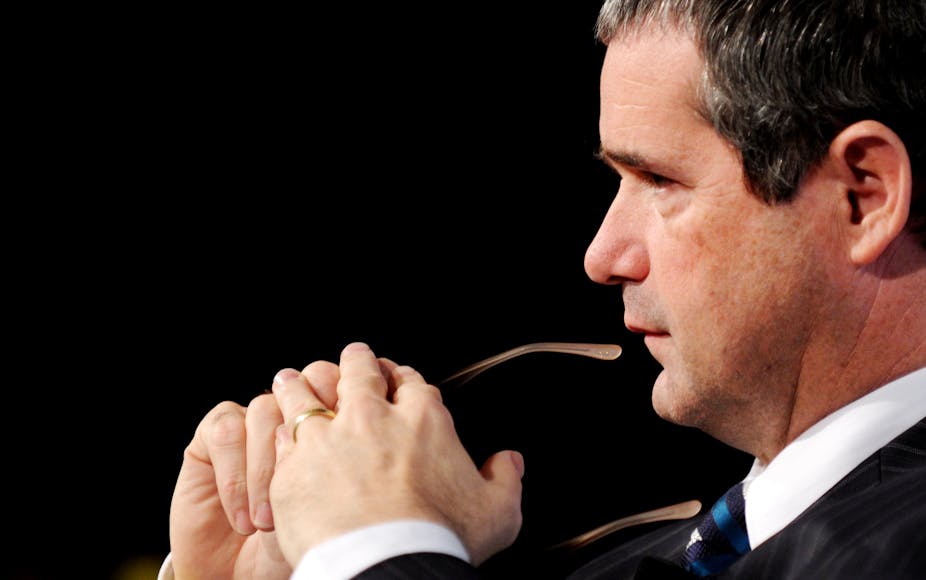Labor’s trouble over the national executive’s controversial refusal to allow rank and file ballots for Victorian legislative council preselections has deepened, with appeals being lodged claiming breaches of the affirmative action rule.
The action follows the executive deciding, after a cross factional deal designed to prevent divisive contests especially among the party’s right, to do the preselections itself.
But the returning officer refused to declare the ballot because there were not enough women candidates to fulfil the affirmative action provision, which requires females in 40% of winnable seats. The executive responded by adhering to its original action.
The controversy is particularly embarrassing for the party because it comes amid pressure for more internal democracy, which was supported during the leadership contest by federal leader Bill Shorten. It highlights again the power of the factions with senator Stephen Conroy, from the right, and senator Kim Carr from the left involved in the deal to have the executive choose the candidates.
Rosemary Barker and 15 other Victorian party members are basing the appeal on a legal opinion from barrister Andrew Ingram, who specialises in administrative law, who argues that the affirmative action provision applies separately to the lower and upper houses.
A separate but similar appeal has been lodged by Marg Lewis, who is from Country Labor.
Ingram writes: “In my view, it is apparent that the rule specifically delineates between the two houses of parliament and imposes the 40:40:20 rule [40% each of men and women and 20% of either gender] upon preselection for winnable seats in each house.”
He says the rule would require eight female candidates for 19 winnable seats but the executive chose only five.
The ALP members are seeking a determination from the party’s national appeals tribunal that the executive has broken the rule.
When it made its original decision the executive had two pieces of advice presented to it from two parts of the right. One was the advice that forms the basis of the appeals. The other said the two houses could be combined for the purposes of the rule.
The executive is relying on the fact that the last national conference found the affirmative action rule had some ambiguity. The conference asked that work be done on clarifying it, which would be considered by the next conference.
Victorian opposition leader Daniel Andrews had asked for the preselections to be finalised by the end of the year. It is not clear how quickly the appeal will be heard.

